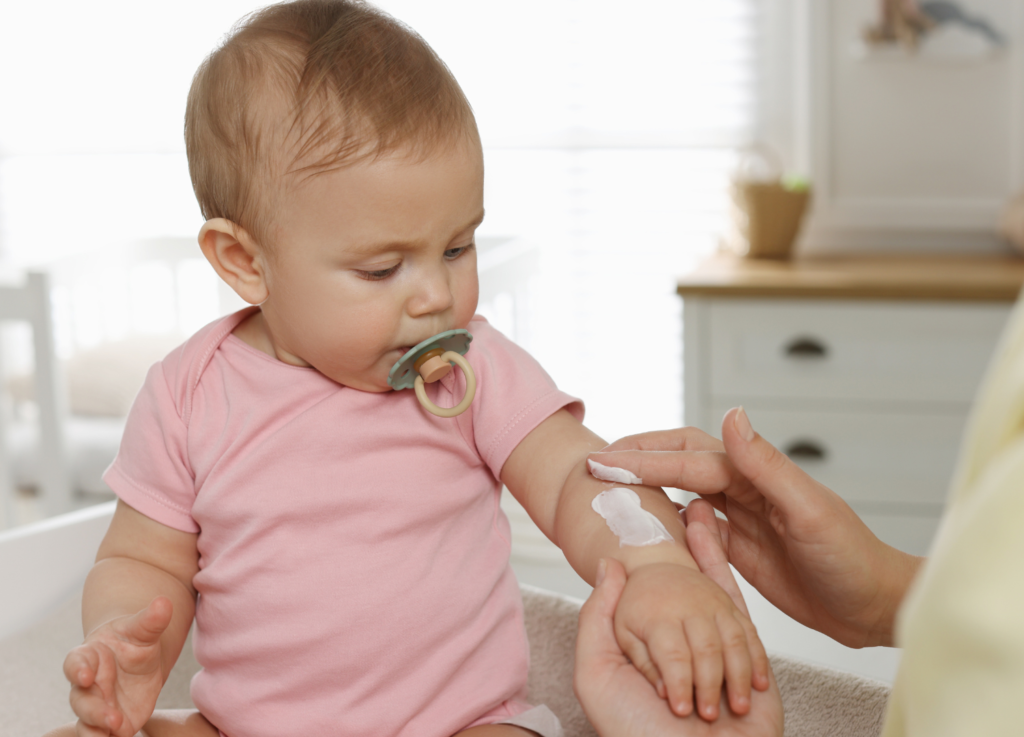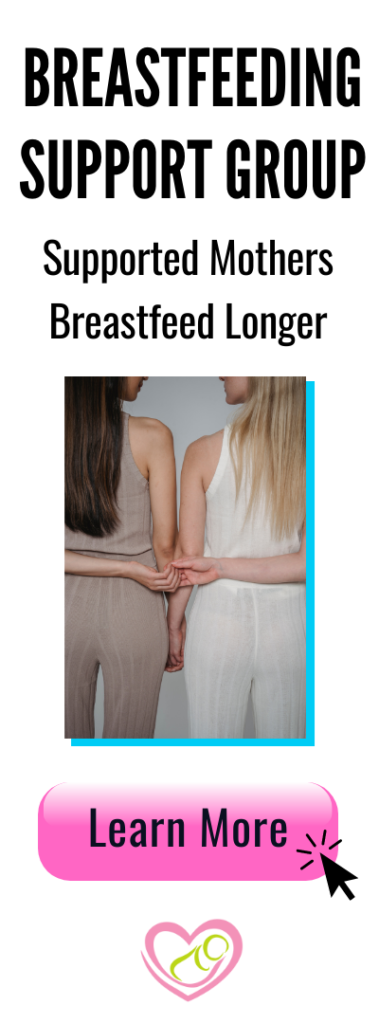How To Keep Your Baby Safe From The Sun
June 16, 2022 2024-06-20 17:16How To Keep Your Baby Safe From The Sun
How To Keep Your Baby Safe From The Sun

Who doesn’t love to get outside when the weather gets warm? Fresh air and activity are key for lifelong health, lifting our mood, providing us with much needed vitamin D, and connecting us with the earth. This is true for babies as well! However, as summer temperatures continue to set records, there are some important considerations for keeping our little ones safe outdoors. Sunburn is especially dangerous for infants, and according to the Skin Cancer Foundation, just one serious sunburn in childhood more than doubles the risk of skin cancer later in life! Read on for tips for enjoying the summer season while protecting your baby.
Is Sunscreen Safe For Babies?
Both the FDA and American Academy of Pediatrics (AAP) do not recommend putting sunscreen on babies 6 months and younger. Why you may ask? Because at this time the skin is so thin and sensitive, making it much more vulnerable to rashes and other side effects from lotions and sprays. So how do we protect our little ones? Keep on reading!
5 Simple Sun Protection Tips For Babies
- Avoid direct exposure. Whenever possible, keep your infant out of direct sunlight, and avoid peak UV times. Seasons and time of day affect levels of UV radiation. The peak times are between April and August, between 10am-4pm daily.
- Cover that delicate skin! When it comes to clothing, lightweight yet full coverage is best. Wide brimmed hats and UVA/UVB protective clothing is available for infants, and a full coverage sun/swim suit with UPF 50+ is a great investment for pool and beach days.
- Use a sun tent! Tents or covers with UV protection are another great option, especially if there’s no shady area. Use these in addition to protective clothing, as more protection is always better! Look for a tent or cover that is well ventilated, as fully enclosed tents can heat up to dangerous levels quickly.
- Limit your time outdoors! Keep in mind that babies overheat much more quickly than adults, since their sweat glands are not fully active at birth. Perspiration is a temperature-regulating system designed to lower our body temperature and keep us from overheating. Since this system is immature in babies, it’s extra important to keep an eye on their behavior. Fussiness and/or redness are signs that it’s time to go inside.
- Hydration is key! Healthy infants get all the hydration they need from breast milk and/or formula. You may notice your baby wants to nurse more frequently when it’s hot, and that’s completely normal. Your body will respond to their needs! Please do not give your infant water. It can upset their electrolyte balance and decrease their appetite, preventing them from getting the necessary nutrients from their breast milk/formula.
If you cannot avoid direct sun, and your baby is under 6 months old, using sunscreen is preferred over risking a sunburn. Please make this a last resort, and make every effort to protect your baby with the other methods first. If your baby is older than 6 months, sunscreen can be used safely.
What To Look For In A Sunscreen
We recommend a mineral sunscreen stick for babies (over 6 months) and toddlers, as they typically do not cause reactions in children, and are significantly easier to apply onto a squirming baby! Also keep in mind that UV rays can penetrate through clouds, so sunscreen is not just for sunny days!
Some considerations on what type of sunscreen to purchase:
Avoid Oxybenzone. Babies are particularly susceptible to allergic reactions and possible hormonal side effects from the common ingredient oxybenzone. Recent studies show that oxybenzone can act as an endocrine disruptor, and may increase the risk of endometriosis and breast cancer. It can also be transferred through breast milk, so please stick to mineral sunscreens for both you and your baby.
Choose a broad-spectrum sunscreen. This means it will protect from both UVB and UVA rays. The recommended SPF is 15-50. Higher SPF does not equate to additional protection or extend the length of time before reapplication is needed.
Look for the ingredients Zinc Oxide and Titanium Dioxide. These naturally occurring minerals provide a safe barrier between your baby’s sensitive skin and the full spectrum of harmful UV rays. Zinc oxide protects effectively against the full range of UVA and UVB rays. Titanium dioxide is also considered effective for broad-spectrum protection, however some studies have found it to be more successful in protecting against short-wave UVA and UVB than long-wave rays.
Important Tips For Applying Sunscreen:
1- Apply 15-30 minutes before going outside, to allow for full absorption and protection.
1- Do not apply near the eyes or on their hands, to avoid accidental ingestion.
2- Reapply every 2 hours onto dry skin.
3- Remember to cover ALL exposed areas, paying special attention to the face, ears and nose.
4- Remember that sunscreen is still important on cloudy days, as UV rays can penetrate through clouds.
If your baby does end up getting sunburned, please contact your pediatrician immediately, as a sunburn requires the same medical attention as any other burn. Remember that sunburn in itself is dehydrating, so keep an eye on your baby’s wet diapers, look for signs of dehydration, and be diligent about responding to hunger cues. Also remember that your baby under 6 months old will get all the hydration they need from breast milk or formula on demand, so resist the urge to give them supplemental water. For babies over 6 months, it may be safe to give them 2-4 oz per day at maximum, even in the heat. Still, additional breast milk or formula is preferred.
If you have breastfeeding or combo-feeding questions, please reach out to us for help. We’re here for you, and we take most major insurance with no copays.
Have a happy and healthy summer- and stay cool!
***The information provided on our website is intended solely for general educational and informational purposes only. It is neither intended nor implied to be a substitute for professional medical advice. Always seek the advice of your physician for any questions you may have regarding your or your child’s medical condition. Never disregard professional medical advice or delay in seeking it because of something you have received in this information.***
Search
baby bottle feeding breastfeeding breastfeeding latch breastfeeding pain breast milk storage breast refusal bugs cedar park regional clogged duct contraceptives daycare discharge doula engorgement exercise foremilk galactogogues hindmilk hospital how to latch baby labor low milk supply low supply massage mastitis newborn care nursing strike nutrition pacifiers plugged duct plugged ducts postpartum prenatal pumping relactation siblings sleep sore nipples breastfeeding suck training tax breaks thrush tongue tie video weaning
Search



